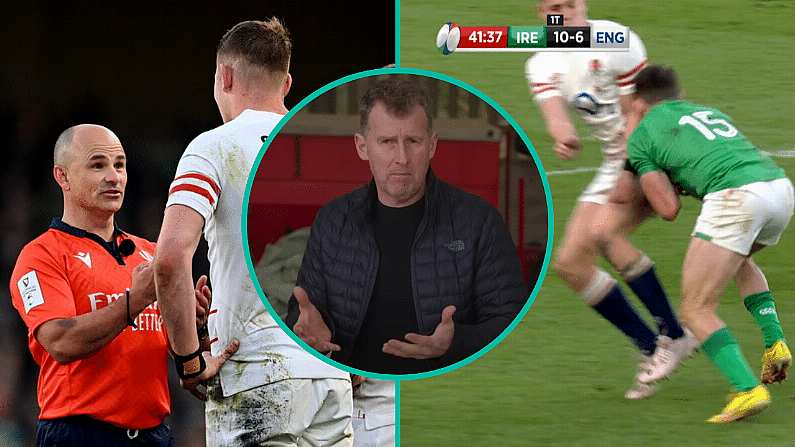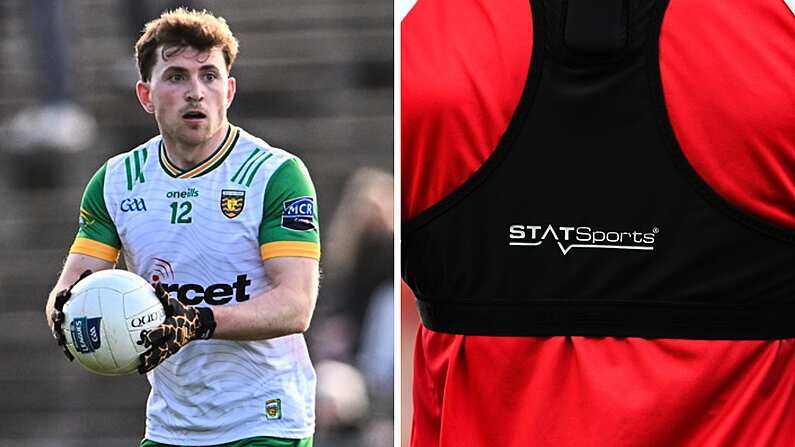The decision to send England's Freddie Steward off against Ireland in last week's Six Nations game caused plenty of debate at the time.
It was clear that he could have caused serious damage to Hugo Keenan with his high hit, with head contact featuring that degree of force always likely to result in a red card. In saying that, some felt that the unusual nature of the incident and the apparent lack of intent from Steward meant that a yellow card would have been sufficient.
Referee Jaco Peyper ultimately went with that first school of thought and you couldn't really argue against his final judgement.
Of course, the decision would later be overturned by World Rugby, who deemed that the offence was only worthy of a yellow card.
In saying that, some felt that this ruling does not change the fact that the referee made a correct call on the day.
Nigel Owens explains reasoning behind Freddie Steward red card
Nigel Owens is never one to shy away from giving an opinion on controversial decisions within the game, with this one being no exception.
From his unique viewpoint of being an elite referee for a number of years, he has given an interesting explanation as to what the official was thinking at the time when he made his initial decision.
Speaking to the World Rugby YouTube channel, the Welshman said that ultimately both a red card and yellow card would have been a correct call at the time.
It comes down simply to this: does he believe there has been foul play? If there is foul play, he then goes to mitigation and degree of danger.
If you look at the way the referee deals with it, it is difficult to argue with his thought process and decision to give a red card. We can all follow and agree with red card and the referee making the decision on the day that there is foul play.
What he believes is that Freddie Steward is in a position where he could have changed what he was going to do next.
Because of that, we have foul play, we have head contact, we have high degree of danger, we don't have much mitigation to take it down from a red, even though some might argue there is. Therefore, we have a red card. Totally understandable decision.
When I'm looking at that decision myself, I'm thinking that it's very difficult to argue with what Jaco Peyper has seen and why he is giving a red card.
Lets go to the yellow card camp. You feel that Freddie Steward couldn't do anything different, that he could do nothing to change what happened next. If that's what you feel and the referee felt at the time, the referee would have went from a red to a yellow or even decide there was no foul play because there was nothing he could do...
I'm looking at it myself and thinking I can't really disagree with the red card. It would be very unfair for me to sit here and tell you I would have given a red or a yellow, because I'm not in that moment on the field.
In that moment on the field, it all comes down to what the referee deals with the facts. The facts were what Jaco Peyper explained and we have a red card, which is not a wrong decision.
If you feel that Freddie Steward couldn't do anything different and gave a yellow card, I couldn't disagree with you as well.
This is well put by Nigel Owens, who pointed out that you could make a very valid argument for both a yellow and red card for this incident.
Regardless of how clear the laws are, there will always be some room for interpretation from referees that will affect the outcome of their decision. This was a perfect example.















